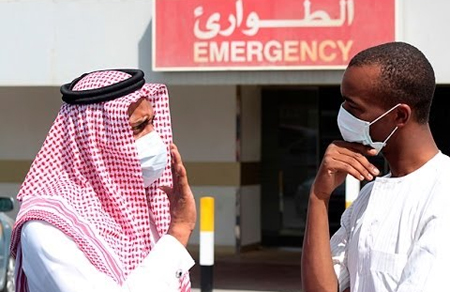 Riyadh, May11: Saudi Arabia has announced 13 more deaths from the Mers coronavirus, as the World Health Organisation prepared for an emergency meeting over worries about the spread of the disease.
Riyadh, May11: Saudi Arabia has announced 13 more deaths from the Mers coronavirus, as the World Health Organisation prepared for an emergency meeting over worries about the spread of the disease.
The Middle East Respiratory System coronavirus has now killed 139 people and infected 480 in the kingdom since it first appeared in 2012, accounting for the bulk of cases registered across the globe.
In its most recent tally, issued at midday on Saturday, the Saudi health ministry said six people had died from the disease over the past 24 hours.
They were three women aged 22, 26 and 35 who died in Riyadh, a 68-year-old woman and a 78-year-old man in the western city of Medina, and a man in his 70s in the commercial capital Jeddah.
On Friday, the ministry said three men aged 94, 51 and 42 had died from Mers in the Jeddah region.
It added that a 74-year-old man had died in the city of Taef, while a woman, 71, and two men aged 81 and 25 respectively, had died in the capital Riyadh.
Mers is considered a deadlier but less-transmissible cousin of the Sars virus that broke out in Asia in 2003, infecting 8,273 people and killing nearly 800.
Like Sars, it appears to cause a lung infection, with patients suffering coughing, breathing difficulties and a temperature, but Mers differs in that it also causes rapid kidney failure.
Experts are struggling to understand the disease for which there are currently no vaccines or antiviral treatments.
The announcement of the latest fatalities in Saudi Arabia came the day after the WHO said it would hold an emergency meeting on Tuesday to discuss the spread of the virus.
The UN health agency’s emergency committee has already met four times to discuss the mysterious coronavirus since it surfaced in 2012.
“The increase in the number of cases in different countries raises a number of questions,” spokesman Tarik Jasarevic told reporters in Geneva on Friday, without giving further details of the aim of the new talks.
Mers cases have also been reported in the UAE, Jordan, Egypt, Lebanon and even the United States, with most involving people who had travelled to Saudi Arabia or worked there, often as medical staff.





Comments
Add new comment